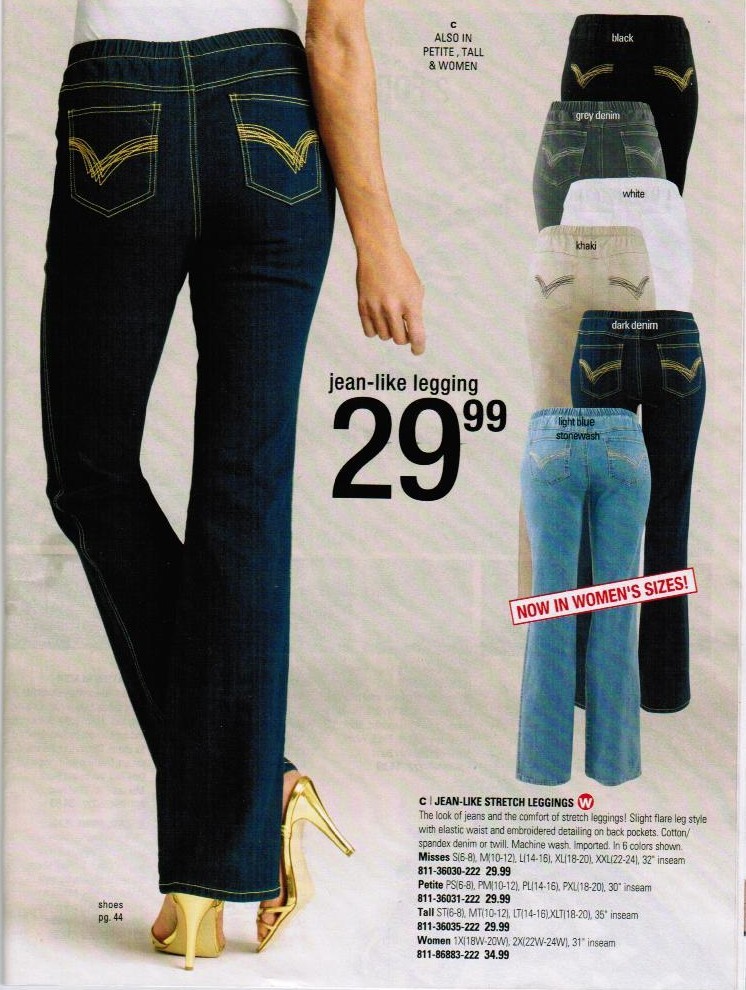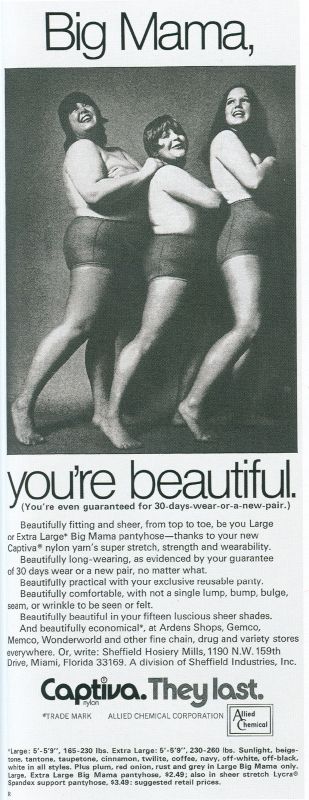Crossposted at Jezebel.
Meg R. noticed something funny at Woman Within, a website that sells clothing sizes 12w to 44w. All of the models were very thin, thus not representative of the intended customer base at all. But, even odder, they were all swimming in clothes that (by today’s standards) were far too large for them. So the website featured thin models selling plus-size clothes (not, in itself, that surprising), but didn’t scale down the clothes to fit them! We might imagine that using thin women would make customers, even if they aren’t thin, like the clothes (because we all internalize thin preference), but modeling poorly fitting clothes, as Meg said, wasn’t doing the product any favors! We’re both baffled by the logic.
Some examples:
NEW! (July ’10): Liz R. sent in another example. This ad is for clothing sized 16-24 but with a very thin model:
Lisa Wade, PhD is an Associate Professor at Tulane University. She is the author of American Hookup, a book about college sexual culture; a textbook about gender; and a forthcoming introductory text: Terrible Magnificent Sociology. You can follow her on Twitter and Instagram.









